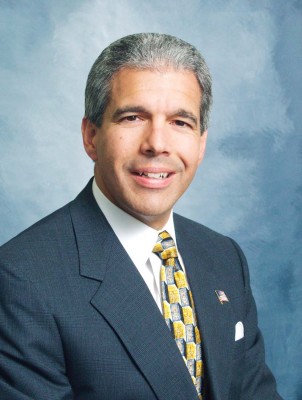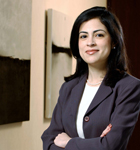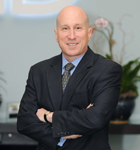
Describe what your current role entails.
In my role, I wear many hats. One of my roles is to assist with leading our operations in India. In addition to that, I focus on our overall efficiencies and profitability internally for our clients—really focusing on which clients we serve and how we deliver our services to them. But, most importantly, what I do in my role and what I’ve always done in my role is be a client-service partner. Specifically, I’m a tax partner providing a variety of services to our clients. From a national perspective, I’m the leader of our diversity and inclusion initiative. My focus is to attract, develop, and retain minority professionals within the firm and to help them advance to the partner and director ranks. So, that encompasses a host of different responsibilities, including extending marketplace eminence, enhancing Deloitte’s talent pipeline, strengthening inclusive behavior at Deloitte, and providing professional development opportunities for my fellow professionals.
When people think of accounting, they typically think of math and accountants who make spreadsheets. What other skills did you need to make it to the top?
I hear that comment all the time. And it’s funny in a way because clearly those are certainly some of the fundamental skills that we need in our profession. But, what we do in accounting and public accounting goes well beyond that. At the end of the day, the only thing we have to sell in our profession is our technical expertise in whatever area of the firm we practice, whether it is audit, tax, consulting, or advisory services. We need to develop very broad skills that focus on two fundamental things. First, we need to develop relationships with our clients. Second, we need help our clients deal with very complex business issues and find solutions. This is a people business so we must develop a mutual trust. Delivering our firm to our clients is what defines success from a client-relationship standpoint.
What are some memorable moments or milestones in your career?
One of the biggest milestones in my career was when I became a partner of the firm in 1990. It was an interesting year because the year before the two predecessor firms—Deloitte Haskins & Sells and Touche Ross—merged and became Deloitte & Touche. The other reason that it stands out is because 1990 turned out to be one of the most challenging years in our profession. The early 1990s were very difficult economic years so going through the process as a partner candidate, and successfully getting to the finish line, was especially rewarding. However, when you think of your career, what you think about is whether you’ve made a positive impact on the people around you and the clients you serve, and whether you’ve left a legacy. The greatest thing in terms of leaving a legacy is watching those whom you have helped and developed along the way that later have become successful partners and directors in the firm. That’s a tremendous area of gratification for me.
We have seen a lot of financial crises and fallout in the financial services industry like the collapse of Lehman Brothers to the LIBOR [London Interbank Offered Rate] scandal. As you talk about legacy, what advice can you share with other professionals to deal with tough economic times?
I share two perspectives with our folks at Deloitte. First, this is a business cycle. Yes, it looks pretty grim now, but it will get better, we will get through it, and our business will continue. Also, the difference between a strong business and one that will fail in these types of situations is the internal core—the integrity and the culture of the business. Fundamental to our core beliefs at Deloitte is having a tremendously high sense of integrity and value for the rules we must adhere to as financial professionals, as well as integrity for one another, the concept of teaming, and doing the right thing by ourselves and for our clients. The integrity of your core is what keeps you going. My advice to our professionals whom I lead is to stay focused, continue to serve your clients, and do your job to the best of your ability.

